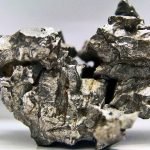Dark stars: the first stars in the universe could have been powered by annihilating...
Dark matter doesn’t really do much of anything in the present-day universe.
But in the early days of the cosmos there may have been pockets...
Astronomers find 116,000 new variable stars
Ohio State University astronomers have identified about 116,000 new variable stars, according to a new paper.
These heavenly bodies were found by The All-Sky Automated...
Scientists discover an unusual neutron star in stellar graveyard
Astronomers have discovered a new kind of neutron star in an unusual Galactic 'graveyard'. Unlike any of its stellar neighbors, the star pulses.
Scientists have...
A new kind of solar sail could let us explore difficult places to reach...
Solar sailing technology has been a dream of many for decades.
The simple elegance of sailing on the light waves of the sun does have...
Asteroids reveal our solar system’s chaotic infancy
The early solar system was more chaotic than previously thought, according to a new, more precise reconstruction of the early history of several asteroids.
Before...
Why did Mars dry out? New study points to unusual answers
Mars once ran red with rivers.
The telltale tracks of past rivers, streams and lakes are visible today all over the planet.
But about three billion...
New study reveals the chaotic early phase of our solar system
Before the Earth and other planets formed, the young sun was still surrounded by cosmic gas and dust.
Over the millennia, rock fragments of various...
Astronomers find hidden trove of massive black holes in dwarf galaxies
Scientists have found a previously overlooked treasure trove of massive black holes in dwarf galaxies.
The newly discovered black holes offer a glimpse into the...
Scientists find possible home for alien life on planets around binary stars
Nearly half of Sun-size stars are binary.
According to University of Copenhagen research, planetary systems around binary stars may be very different from those around...
Satellite navigation’s new player: Europe’s Galileo
Since the first artificial satellite, Sputnik 1, was launched by the Soviet Union in 1957; the earth-to-space traffic hasn't stopped.
Numerous technologies are now connected...










